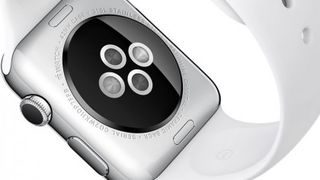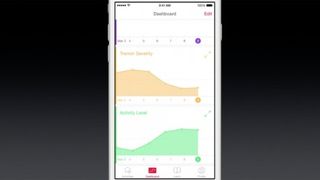What is ResearchKit? A guide to Apple's medical research platform
Can an iPhone app really 'transform medical research?'
How could it be useful?
Sounds dull? Well it isn't when you think about how it could be used. On a smaller scale, it will let doctors keep a much closer eye on patients' conditions.
Consider a patient with heart arrhythmia, an abnormal heart rhythm. Where your average person may not be able to accurately monitor their heart beat using the normal counting method, let alone identify an abnormal rhythm, an Apple Watch should be able to do both with zero fuss.
So should the camera/flash combo of an iPhone, in fact, but we're yet to see if the heart rate ResearchKit app lets you do this. Within no time you'd have a regular record of the condition.

ResearchKit should make recording your body's functions an order of magnitude more often totally pain-free. And it's not just about enabling what you might otherwise need a medical professional for either.
Just getting patients to record any sort of regular diary of impressions can be difficult enough, and by making that process easier it should in turn make it easier for GPs to convince them to do so.
ResearchKit is also a lot more advanced and flexible than the systems doctors use to record patient data (based on our experience in the UK at least), which is where the wider uses of the framework come in handy. It will make sharing data between doctors and institutions much easier, and can be used as the basis for extremely huge research trials.
Think about it: Apple has sold 700 millions iPhones, and while just a fraction of those will be active at this point, it is a pretty good base to work with. If Tim Cook gets his way, it could end up being one of the technology building blocks for medical research across the world.
Get daily insight, inspiration and deals in your inbox
Get the hottest deals available in your inbox plus news, reviews, opinion, analysis and more from the TechRadar team.
What are the potential issues?
One of the great bits of news is that ResearchKit is open source. Now, what this means is that its source code is freely available and can be distributed and modified without Apple suing anyone for doing so.
However, it doesn't mean that every single part of the resulting infrastructure will be. Take Android, for instance: it is open source, but nowadays core parts of it are not. At present, the whole Android front-end is based on Google Now, which is not an open source piece of software. Google has made sure you don't get the full experience with the open source take on Android, and it could be the same case here.
Apple announcing ResearchKit as open source will be enough to convince many, but there are some bad signs already. If this is really a purely altruistic open source project, why didn't Apple co-announce support for Android? Now that would be a project with truly world-changing potential.

It seems likely Apple is going to try to hold onto a good degree of control over ResearchKit, as it would be a great way to give Mac computers a foothold in health services nation-wide. In the corporate world, there's generally always another way to view a good deed.
There are also going to be limits to the quality of data ResearchKit will be able to harvest, at least for now, with readings captured by patients themselves with hardware that's generally not maintained in the way professional medical tools are. The iPhone is not going to suddenly become every practitioner's favourite tool.
However, the thing is that if Apple keeps the reins on ResearchKit loose enough, there's little reason it couldn't in theory be used completely outside of any Apple hardware. And then, well, the sky's the limit.
Andrew is a freelance journalist and has been writing and editing for some of the UK's top tech and lifestyle publications including TrustedReviews, Stuff, T3, TechRadar, Lifehacker and others.

